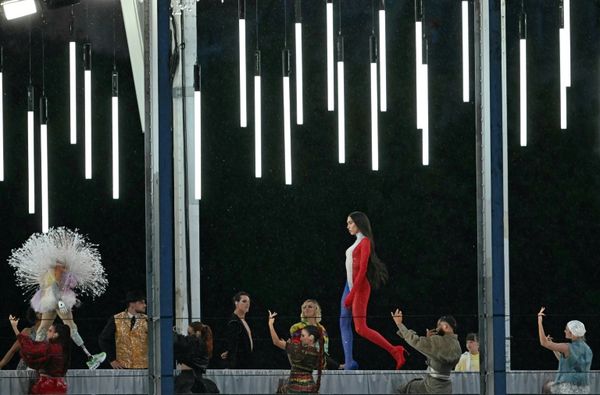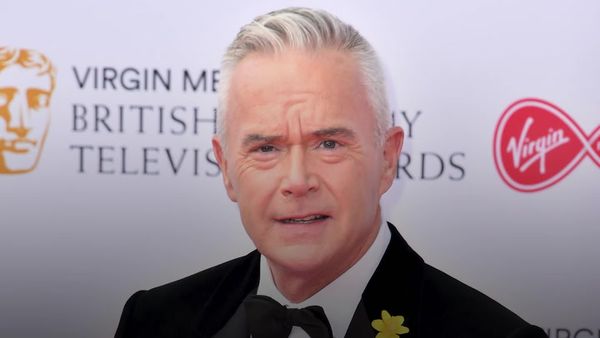
With the likelihood of future pandemics and crises assured, the federal government’s announcement of a year-long COVID inquiry is timely. But beyond investigating the health and economic impacts of the pandemic, we need to look closely at the deliberate policy decisions made during that period to jeopardise our cultural life: the ways we learn from Australian educators, researchers and artists, and the ways they earn their livings.
Disturbingly, this happened right when we needed them most. When lockdown attached us to our screens, the former Coalition government made it less likely we’d be watching Australian stories. Quotas for Australian drama, documentaries and kids’ shows were slashed, removing the obligation for free-to-air TV and streaming providers to show us work by local creators.
When international border closures decimated universities’ incomes, they were denied the financial support that every other Australian business received. Not once, not twice, but three times were universities excluded, with the qualifying criteria for relevant schemes repeatedly changed along the way. More than 17,000 jobs in the sector were lost within the first year alone. There was also a doubling of fees for humanities degrees — a decision made without evidence or cause — making education much more expensive for critical, creative thinkers.
When state border closures made local culture critical, local governments were also denied wage subsidies and cashflow support. Local governments manage the majority of Australia’s art galleries, museums, performing arts centres and libraries across our regions and suburbs. Like universities, which also own such cultural institutions, they’re one of the nation’s biggest employers of artists and creative workers. Jobs were lost all over Australia, especially regionally.
When artists and creative sector bodies — the first and worst hit, the last to recover — immediately lost their work, incomes and livelihoods, the industry came together in unprecedented unity to outline what was required. In response, the government at first refused, then delayed support, and then excluded individual artists from being able to apply to the new fund.
Adding insult to injury, the fund’s public messaging made it clear that workers other than artists were the more important: the then-prime minister Scott Morrison talked up its support for “tradies”, an employment group who were not significantly disadvantaged during the pandemic.
Each of these decisions made it considerably more difficult, if not impossible, for artists and educators to continue their important work during the pandemic. The people we relied on to educate and inspire us were targeted by policies of exclusion.
The impacts of those policies have a long, slow burn that’s still being felt. We’re still seeing an exodus of artists and arts workers, event cancellations, and job losses at universities. It’s for this reason that the Albanese government’s new national cultural policy is called Revive — and it’s got a lot of hard work to do to redress those impacts and restore Australia’s cultural powerhouses.
We also need to examine the cultural impact of rebranding welfare payments. The marketing terms JobKeeper and JobSeeker seem to void a government’s social security obligations, conditioning the community against a focus on our common good. Words like these are designed to change the way we look at one another in our time of greatest need.
All of these were deliberate choices, and all require close scrutiny. Whether it’s another catastrophic fire, widespread flood or global pandemic, major disruptions to our cultural life are our new abnormal. The ways we stand by our artists, create our own culture rather than consuming someone else’s content, educate our next generations, and look after one another — these decisions define us.
The ways we practice our culture are what give us strength in difficult times. The shows we watch, the books we read, the songs we sing and the ways we learn are what make us who we are. Art brings us together like nothing else, focusing our minds and deepening our convictions. It’s that passion that ignites our most ambitious thinking.
The pandemic afforded Australia the rare opportunity to offer ambitious support to all of the people who create our future. The nation did not seize this opportunity. The COVID inquiry must take a comprehensive look at what kind of Australia the previous government wanted to see emerge from that crisis — so that, come the inevitable next crisis, we’re instead creating an Australia that flourishes.
What steps can be taken to ensure Australian culture not only survives but thrives? Let us know your thoughts by writing to letters@crikey.com.au. Please include your full name to be considered for publication. We reserve the right to edit for length and clarity.






